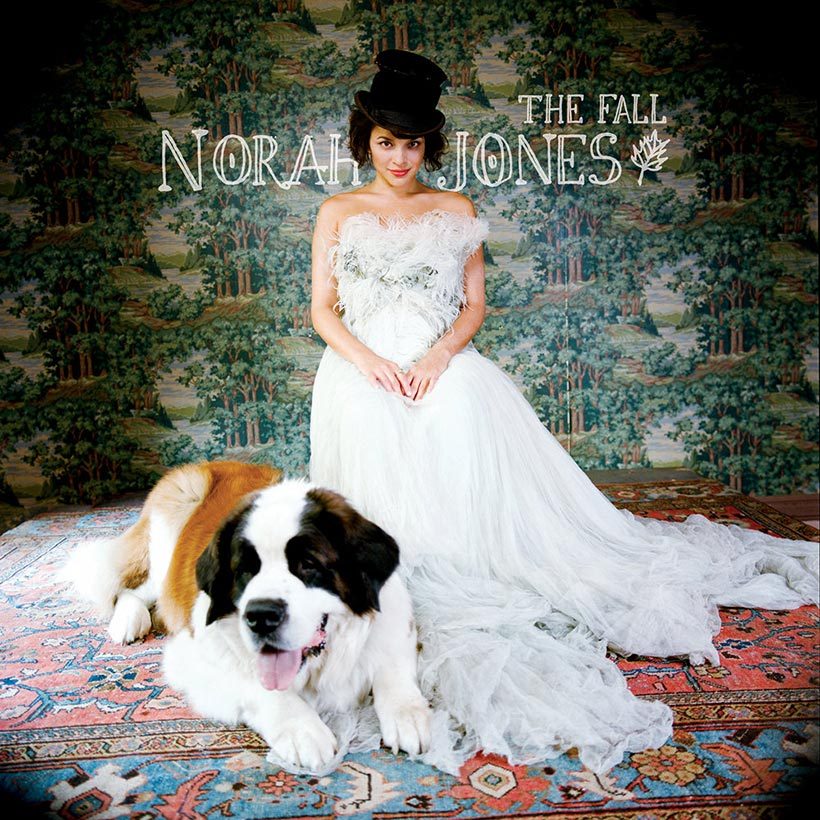‘The Fall’: How Norah Jones Rose To New Artistic Heights
Taking creative risks in order to fully express herself, ‘The Fall’ forced fans and critics alike to rethink what a Norah Jones album should be.

With her soft, understated vocals, singer and pianist Norah Jones proved to be one of 2002’s surprise breakthrough artists. That was when her alluring debut album, Come Away With Me – featuring the hit single “Don’t Know Why” – topped the charts around the globe. Grammy awards followed and, two years later, Jones’ second Blue Note album, Feels Like Home, offered up more low-key, jazz-inflected pop songs. Her third, 2007’s Lee Alexander-produced Not Too Late, followed a similar stylistic trajectory (albeit with a stronger country music influence) and was Jones’ first album of wholly original material. Her fourth, however, 2009’s The Fall, forced a complete rethink of what Norah Jones was about.
Listen to The Fall on Apple Music and Spotify.
An accomplished songwriter
Released on November 17, 2009, The Fall was markedly different in style than Jones’ previous work, and reflected the singer’s desire to work with Grammy-winning producer Jacquire King. His musical associations were eclectic, ranging from rock group Kings Of Leon and singer-songwriter Josh Ritter to veteran blues maven Buddy Guy and gravel-voiced troubadour Tom Waits.
King’s presence on The Fall brought a gritty quality and deeper earthiness to Jones’ sound. The delicate acoustic piano of her three previous albums was mostly absent. Instead, Jones alternated between gnarly electric Wurlitzer piano, guitar (acoustic and electric), and even glockenspiel.
As Not Too Late amply demonstrated, Jones was maturing into an accomplished songwriter, and on The Fall she had a hand in all the tunes, writing eight of them on her own and composing the remaining five with both old and new collaborators. The first evidence of these was the whimsical self-penned single “Chasing Pirates.” Released on October 13, 2009, it was characterized by a dreamy, infectious chorus and featured Jones playing Wurlitzer over an earthy backbeat (a remix by Beck, credited to The Droogs, emerged early the following year on a vinyl pressing of the EP).
Eloquent and deeply affecting
The parent album was decidedly more rock-tinged than anything the singer had done before. It was also more robust. Jones’ vocals were still spellbinding, but she was patently no longer the delicate ingénue of Come Away With Me. Highlights ranged from the subdued, slow-building rocker “Young Blood” to the midtempo psych-rock ballad “Stuck,” which found Jones, who plays electric guitar, co-writing with Will Sheff, the frontman of the Texas band Okkervil River.
Two of the tunes (the plangent “Even Though” and the jaunty, faux-vaudeville song “Tell Yer Mama”) were co-written with her longtime friend and musical compadre Jesse Harris, who had penned Jones’ debut smash, “Don’t Know Why.” Other standouts included the soulful “I Wouldn’t Need You,” on which Zac Rae’s ghostly organ notes augment Jones’ voice; the yearning “Waiting”; and “December,” a simple but eloquent and deeply affecting winter meditation.
A watershed album
Jones’ fans embraced The Fall’s new direction, and the album went platinum in five countries, including the US, France, and Canada. Its success inspired the singer-songwriter to continue to branch out with her subsequent album, 2012’s Little Broken Hearts, which remains her most experimental work to date.
A decade on from its release, it’s clear that The Fall not only marked Norah Jones’ rise as a songwriter of note but also showed her growth and maturity as an artist. Revealing that she was committed to taking risks – both aesthetic and commercial – in order to express herself fully, it remains a watershed album in the singer’s catalog.












